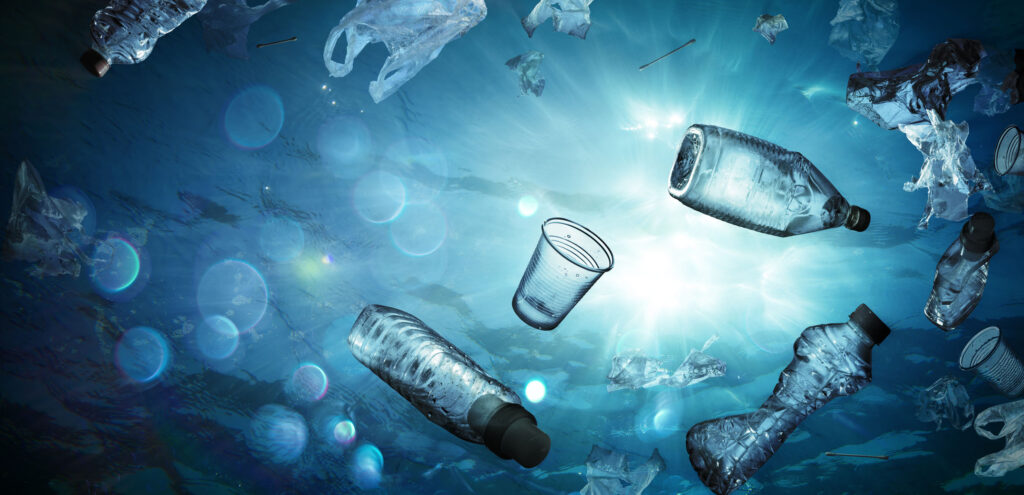CARIBMEPA – off and running
Harnessing the Blue Economy for the Sustainable Development of the Caribbean
By Capt. Rawle Baddaloo *
2019, November 1: On February 27, 2019, at the High Level Symposium (HLS) for Transport Ministers of the Caribbean, held at the Iberostar Hotel in Rose Hall, just outside the city of Montego Bay, Jamaica, a resolution was adopted that said in part:
“2 7 RECOGNIZE ALSO the establishment of a Caribbean marine environment protection association as a consolidator for marine environment issues and actions in the Caribbean and as a group for engaging industry, regulators, governments, conservation groups, educators and more in promoting and protecting the marine environment; …”
This event and the adoption of the mentioned Resolution heralded the formalizing of the Caribbean Marine Environment Protection Association (CARIBMEPA).
The topic of the symposium was: Maritime Transportation: Harnessing the Blue Economy for the Sustainable Development of the Caribbean.
To understand the reasoning behind this historical development and the work that made it possible, we must go back a little. Over twelve years ago, the North American Environment Protection Association (NAMEPA) was formed. The Co- Founder and Executive Director is Carleen Lyden Walker. Ms. Walker is also an IMO Maritime Ambassador. NAMEPA has been extremely successful and has a huge membership.
Moving forward to September 2016, Women in Maritime Association-Caribbean (WiMAC) held a conference in the Cayman Islands which they invited Colin Young, who is the IMO representative to the Caribbean. In his presentation he cited that while 86% of the Caribbean nations had ratified MARPOL, only 25% had implemented them. This is against the background of the Caribbean Sea being declared a protected area. Carleen Lyden Walker, who was also a speaker, recognized the vulnerability of the Caribbean Sea and, together with Sherice Arman of the Cayman Islands, started a process by holding conferences and meetings to begin the building CARIBMEPA.
Carleen, having had the benefit of longevity in the maritime industry, set about forming this association of associations so as to gain the critical mass necessary to form CARIBMEPA. In this process she used her influence to welcome as members: NAMEPA, OAS-CIP, America Salvage Association, RAC-REMPEITC, CSA, Cruise Line International Association, MTCC Caribbean, Port Management Association of the Caribbean, COCATRAM and WiMAC. This having been done and the Resolution of the HLS meeting in Montego Bay in February adopted, the dye was now cast to formalize. The document was formally signed at the Caribbean Shipping Association’s meeting in Kingston Jamaica in May 2019.
At present work is proceeding to incorporate CARIBMEPA in the Cayman Islands and dues for membership and the structure of the Association is being worked on. CARIBMEPA meets regularly either in subcommittee or main meeting, using the Internet. Members can therefore expand or explain situations or report on meetings that an individual or organization would have attended.
Ratification, standardisation
In reviewing the work and mission of CARIBMEPA, we can use, as a starting point, the statement that while 86% of the Caribbean have ratified MARPOL only 25% have implemented. The Caribbean region has four major international languages, Spanish, French, Dutch and English. It is safe to assume therefore that there are, at a minimum, four different systems.
While IMO has been able to create minimum standards for all, in order to encourage participation, one size does not really fit all. The different legal systems, for example, creates challenges. Additionally, not all countries have a full maritime authority and ratification of Conventions sometimes gets overlooked in the crush to meet other more urgent deadlines. This is not an indictment on anyone but a fact of life. As such CARIBMEPA will work with the various Administrations to get matters back on track.
The principal responsibility for enforcing IMO regulations concerning ship safety and environmental protection rests with the flag state, Flag state enforcement is supplemented by Port State control. If, however, the country has not fully implemented the Convention — in this case MARPOL and its Annexes — enforcement cannot happen.
Tourism plays a larger Role in the Caribbean economy than any other world economy with 700,000 jobs directly and 2.2 million indirectly. The environmental, social and economic impacts of marine pollution in the Caribbean have been well documented over the last three decades and expose a very serious threat to the sustainable development of the region.

Pollution
Oil, marine debris, plastic and other items pose a direct threat to the coral reefs and the marine life of the Caribbean Sea.
Only 15% of wastewater entering the Caribbean Sea is treated. Most wastewater includes pollutants such as nutrients, fecal matter, toxins and pharmaceuticals to name a few. Related to this are Wreck Risks.
About 300 known large (mostly ship)wrecks lie at the bottom of the Caribbean Sea. Most of these (90%) are at least 50 years old. These wrecks may be holding millions … as much as 320,000,000 … gallons of oil and other hazardous materials. Potentially leaking wrecks threaten valuable tourist economy, ecological resources and fisheries. With 70% of the population living along coasts, this could be disastrous. Additionally, acidification of the oceans is increasing. This will accelerate corrosion of the wrecks.
CARIBMEPA will initially focus on full implementation in the Wider Caribbean Region. There is a need to engage in advocacy efforts for maritime issues to become a priority for governments; to demonstrate the value proposition of the marine industry to nations. Developing partnerships is a planned strategy. Training and Education will be on the front burner because lack of knowledge is a major cause for the horrendous situation facing the Caribbean. Whatever barriers to implementation come up they must be eliminated.
CARIBMEPA therefore will:
- be the Consolidator for marine environment issues and actions in the Caribbean
- become the umbrella for engaging industry, regulators, governments, conservation groups, educators and any others in protecting the marine environment;
- act as a focal point for facilitating the implementation of MARPOL;
- educate the public about protecting the marine environment, beach clean ups, school education etc.;
- facilitate a potentially polluting wreck prioritization programme;
- participate in development of regional waste disposal strategies;
- support the development of a MARPOL Training Academy initially at the Caribbean Maritime University.
CARIBMEPA, through NAMEPA, has access to a large amount of educational material, brochures, posters and user-friendly education tools which it has already accessed and is in the process of introducing it to the Education system in the Region.
The obstacles are clear. There are: limited funding with competitive needs; lack of infrastructure; lack of readily available best practices expertise.
Starting workshop
CARIBMEPA’s solution to this is to start with Regional Interactive Workshops which will follow these guidelines
- A facilitated process led by world class experts
- Provide entry to process at every level of present MARPOL engagement/maturity
- Provide Model Legislation which each country can adapt and adopt
- Participation by key Regional Stakeholders including RAC REMPEITC
- Be cost effective
This will then be followed by Implementation and Enforcement.
CARIBMEPA will be looking at various Capacity Building Resources as funding is key to the fulfillment of its goals. It will therefore partner and work with
* Caribbean Development Bank
* US Department of Justice MARPOL penalties
* InterAmerican Development Bank
* The World Bank
* Foundations
* Reverse funding “carbon trade”
* other groups
The voyage of CARIBMEPA has now started, it may be a long one. The region has already shown a huge interest in getting things in place. We must move quickly therefore to get all territories moving as one in the shortest possible time. []

* Rawle Baddaloo is a Past President of the Caribbean Shipping Association.





